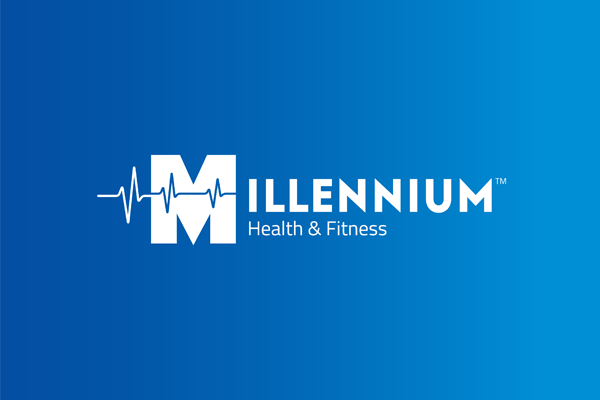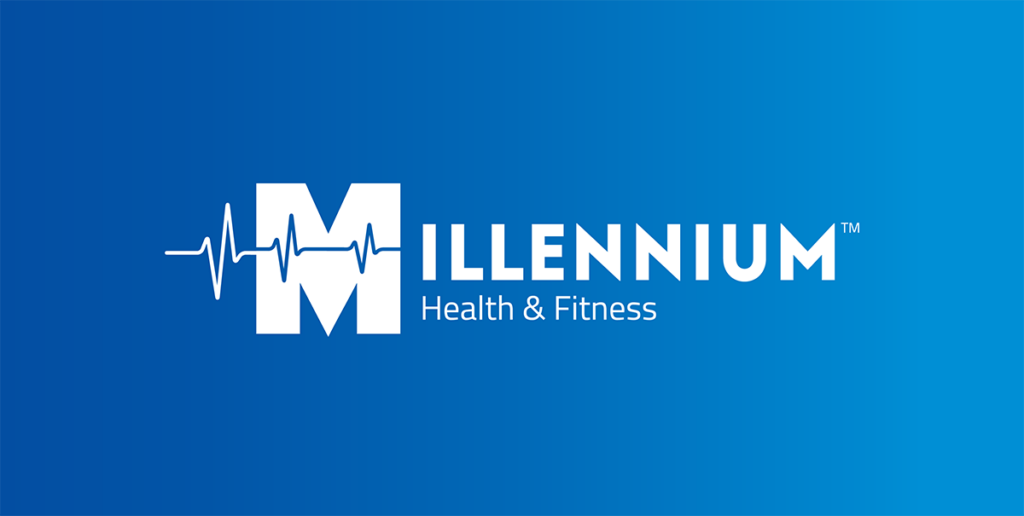Millenium Health & Fitness
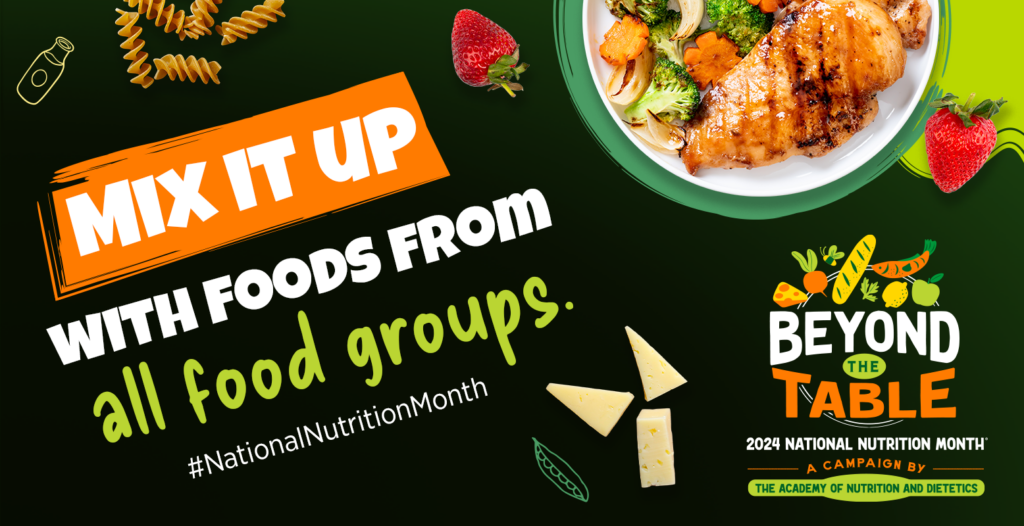 Sierra Rankin, MS, Millennium Associate Operations Manager
Sierra Rankin, MS, Millennium Associate Operations Manager
Opting for wise food choices plays a crucial role in maintaining health as you age. Developing an understanding of the various food groups and their recommended proportions in your diet contributes to the formation of a healthy eating pattern over time.
It’s essential to ensure you meet the recommended intake for each food group without exceeding your daily calorie limit. Keep in mind that the appropriate amount to maintain your weight depends on factors such as age, gender, and physical activity level. Striving for a balanced diet involves regularly incorporating a variety of foods from different groups into your meals.
Vegetables
Your parents were correct: incorporating vegetables into your diet is fundamental for maintaining a healthy lifestyle. In fact, there’s no harm in consistently adding a variety of plants to every meal. Vegetables boast a diverse range of colors, flavors, and textures, and they are rich in essential vitamins and minerals, carbohydrates, and valuable fiber. The vegetable food group encompasses dark green vegetables, red and orange vegetables, starchy vegetables, as well as legumes like beans and peas.
Leafy green vegetables stand out as an exceptionally healthy choice. For instance, spinach provides essential nutrients such as vitamins K and A, folate, magnesium, iron, and dietary fiber.
Fruits
Fruits play a vital role in maintaining a healthy diet, adding color, flavor, and essential nutrients to your meals. The array of choices includes citrus fruits like oranges and grapefruits, various berries, tree-grown fruits such as apricots, cherries, peaches, and mangoes, as well as others like figs, grapes, and pineapples.
Incorporating more fruits into your diet offers significant benefits for overall health. Similar to vegetables, fruits contain carbohydrates and provide valuable fiber that supports a healthy digestive system. While 100% fruit juice contributes to this category, it is recommended that at least half of the fruits consumed be whole fruits. When opting for frozen, canned, or dried fruit, choose options with the lowest added sugar content.
Grains
Any food derived from wheat, rye, rice, oats, cornmeal, barley, or other cereal grains falls under the category of grain products. This encompasses a variety of items such as bread, pasta, breakfast cereal, grits, tortillas, and even popcorn. Grains, in conjunction with fruits, vegetables, and dairy, constitute a primary source of carbohydrates, the body’s main energy provider. It is advisable to check food labels to opt for grain choices low in saturated fat and added sugar. Whole grains offer iron, various B vitamins, and fiber.
Certain grain products undergo a refining process, resulting in a finer texture and extended shelf life.
However, this process removes fiber and nutrients. Many refined grains are subsequently enriched, meaning that certain nutrients are reintroduced after processing. Examples of refined grain products include white flour, degermed cornmeal, white bread, and white rice.
Protein
Proteins are often referred to as the body’s building blocks, crucial for tissue building and repair, as well as supporting the immune system to fight infection. Additionally, the body utilizes excess protein as an energy source. For optimal health, older adults are advised to include a diverse range of nutrient-dense proteins in their diet. Opt for lean (low-fat) meats and poultry, and consider alternative sources such as seafood, eggs, beans, nuts, seeds, and soy products.
Plant-based protein sources, like nuts and seeds, tend to be lower in saturated fat, cholesterol-free, and provide additional fiber and health-promoting nutrients. It’s essential to note that plant-based meat alternatives can differ in nutritional value, often being highly processed and containing elevated sodium levels.
For a balanced intake, it is recommended to consume 8 to 10 ounces of various seafood per week. This not only contributes to protein intake but also ensures a source of omega-3 fatty acids, such as EPA and DHA, which are beneficial for heart health.
Dairy
Incorporating dairy into the diet is also beneficial, aiding in the maintenance of strong bones and supplying essential nutrients such as calcium, potassium, and vitamin D. Opting for low-fat or fat-free options within the dairy group supports heart health by providing vital vitamins and minerals with reduced fat content. Additionally, some fortified dairy alternatives can offer comparable nutritional benefits to traditional dairy products.
References:
- Cleveland Clinic. (2023, December 13). Healthy Foods to eat every day. https://health.clevelandclinic.org/healthy-foods-to-eat-every-day
- U.S. Department of Health and Human Services. (n.d.). Healthy eating as you age: Know your food groups. National Institute on Aging. https://www.nia.nih.gov/health/healthy-eating-nutrition-and-diet/healthy-eating-you-age-know-your-food-groups

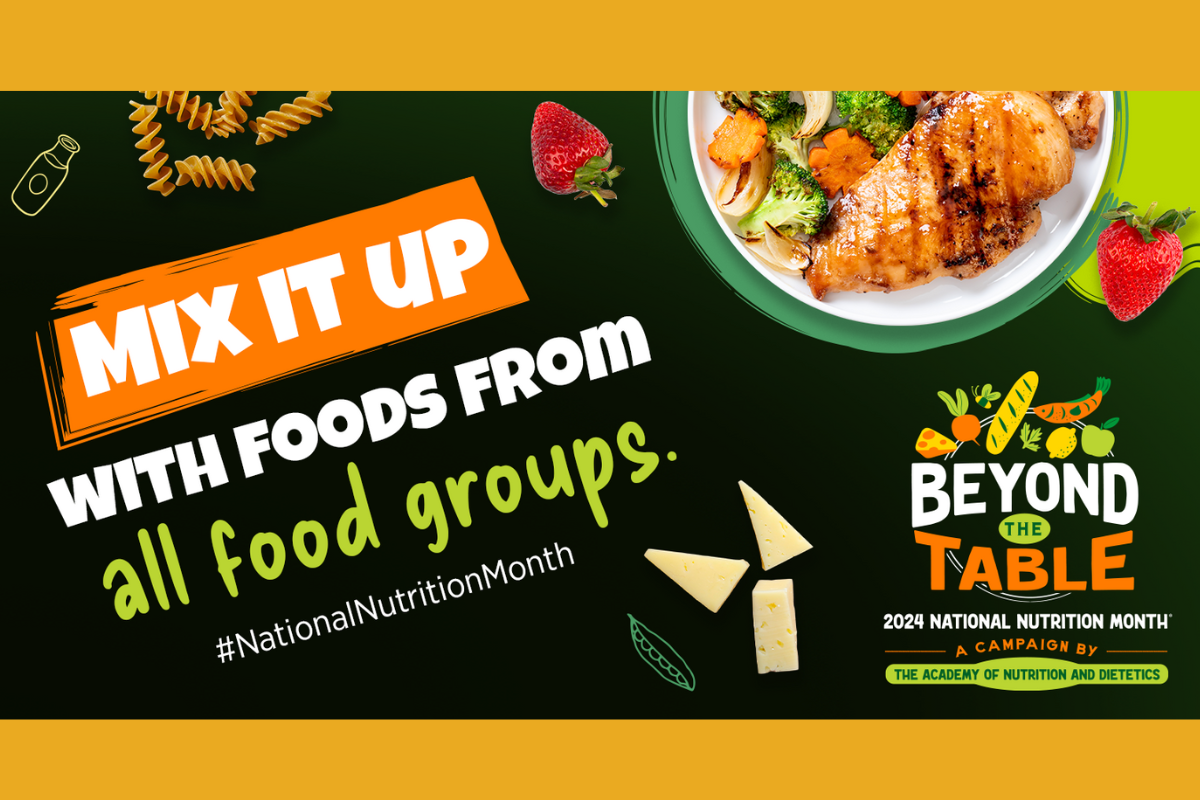
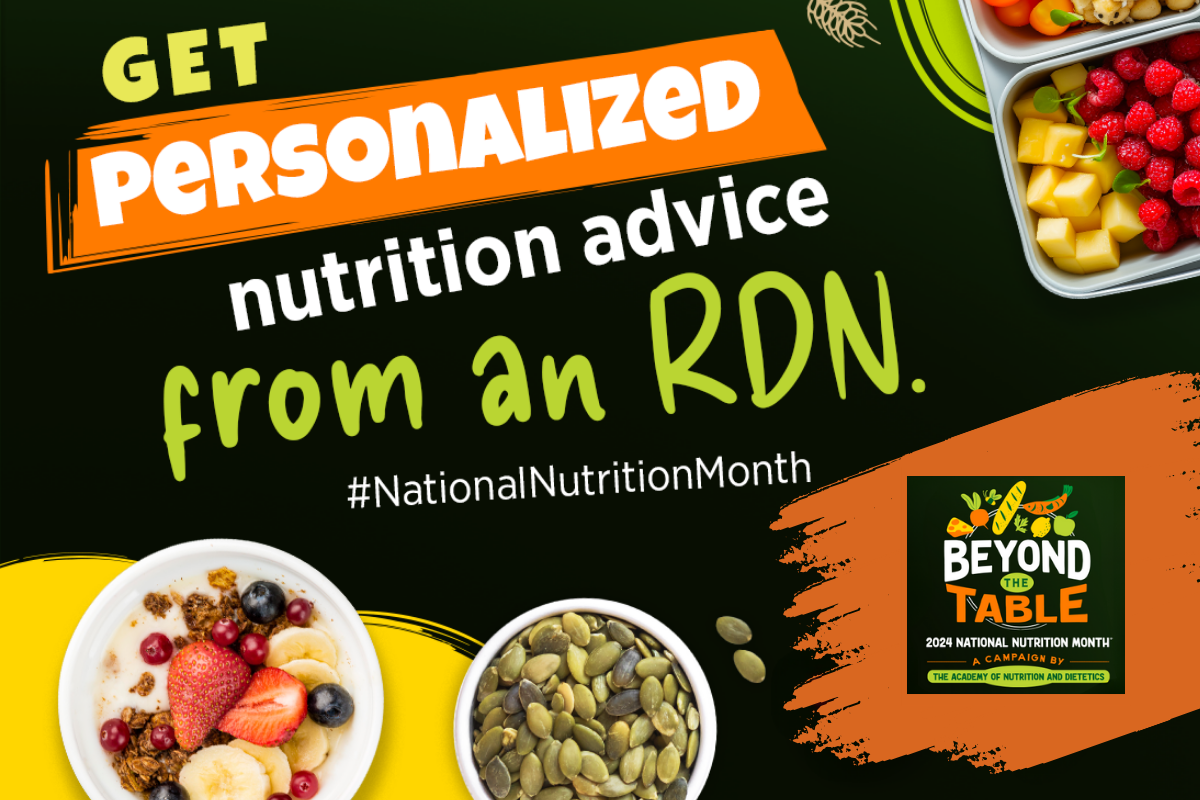
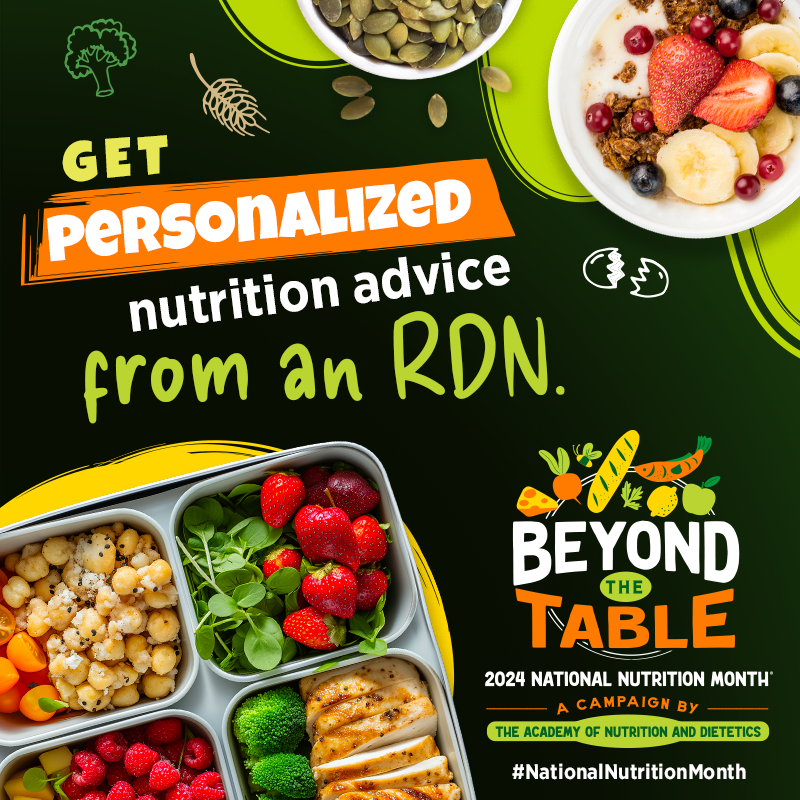 Sierra Rankin, MS, Millennium Associate Operations Manager
Sierra Rankin, MS, Millennium Associate Operations Manager 
 March is not only a time for blooming flowers and warmer weather but also a month dedicated to promoting healthy eating habits and nutrition education. National Nutrition Month®, created by the Academy of Nutrition and Dietetics, is an annual campaign aimed at raising awareness about the importance of making informed food choices and developing healthful eating and physical activity habits. In this blog, we’ll explore the significance of National Nutrition Month® and share practical tips for fueling your body and nourishing your soul.
March is not only a time for blooming flowers and warmer weather but also a month dedicated to promoting healthy eating habits and nutrition education. National Nutrition Month®, created by the Academy of Nutrition and Dietetics, is an annual campaign aimed at raising awareness about the importance of making informed food choices and developing healthful eating and physical activity habits. In this blog, we’ll explore the significance of National Nutrition Month® and share practical tips for fueling your body and nourishing your soul.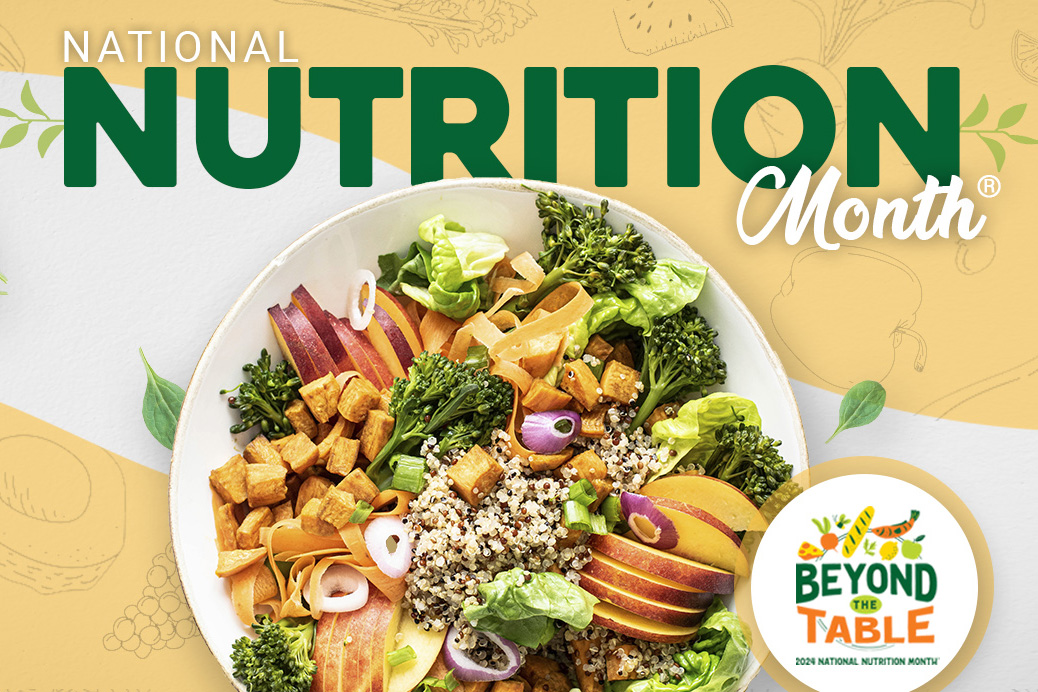
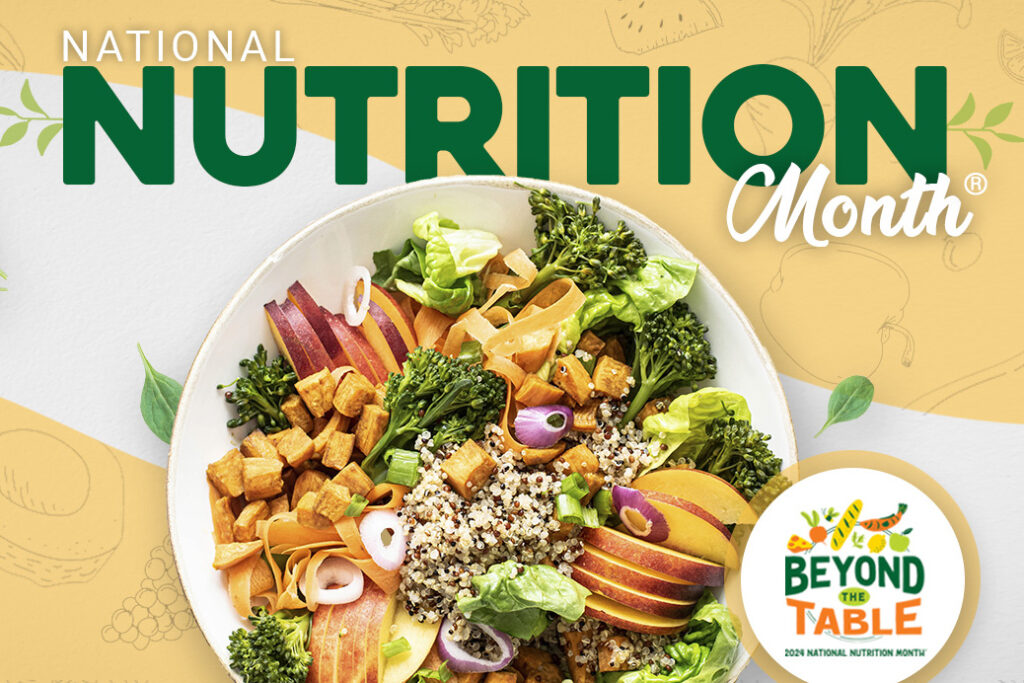
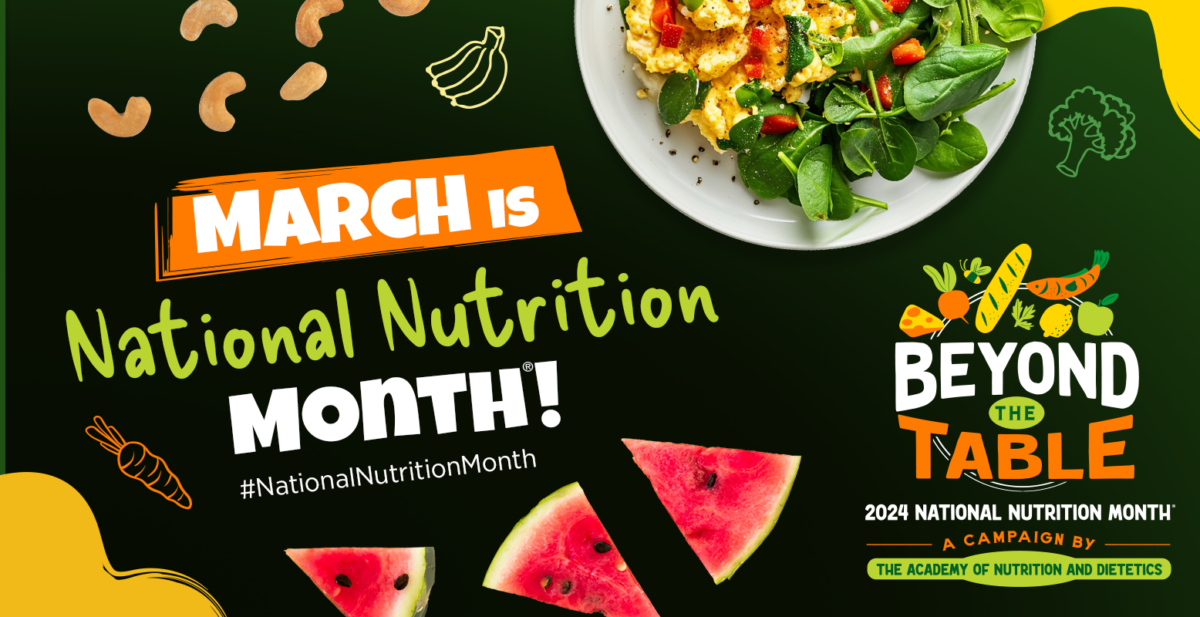
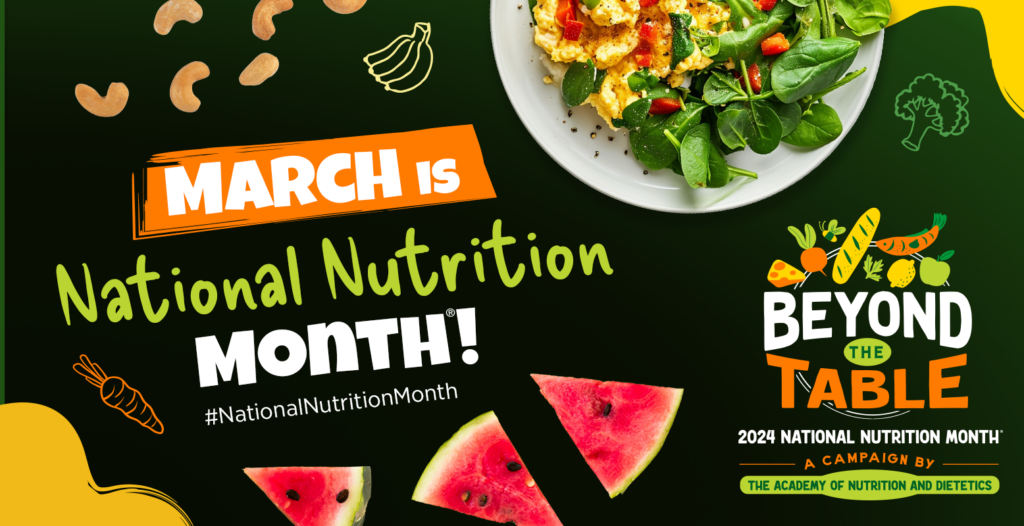 March brings more than just the promise of spring; it’s also the time for National Nutrition Month®, an annual campaign spearheaded by the Academy of Nutrition and Dietetics. This month-long observance, which began as National Nutrition Week in 1973 and expanded to a month in 1980 due to growing interest in nutrition, invites everyone to learn about making informed food choices and developing healthful eating and physical activity habits. The theme for 2024, “Beyond the Table,” invites us to explore the journey of our food from its source to our plates, emphasizing the importance of making informed choices and developing sound eating and physical activity habits.
March brings more than just the promise of spring; it’s also the time for National Nutrition Month®, an annual campaign spearheaded by the Academy of Nutrition and Dietetics. This month-long observance, which began as National Nutrition Week in 1973 and expanded to a month in 1980 due to growing interest in nutrition, invites everyone to learn about making informed food choices and developing healthful eating and physical activity habits. The theme for 2024, “Beyond the Table,” invites us to explore the journey of our food from its source to our plates, emphasizing the importance of making informed choices and developing sound eating and physical activity habits.